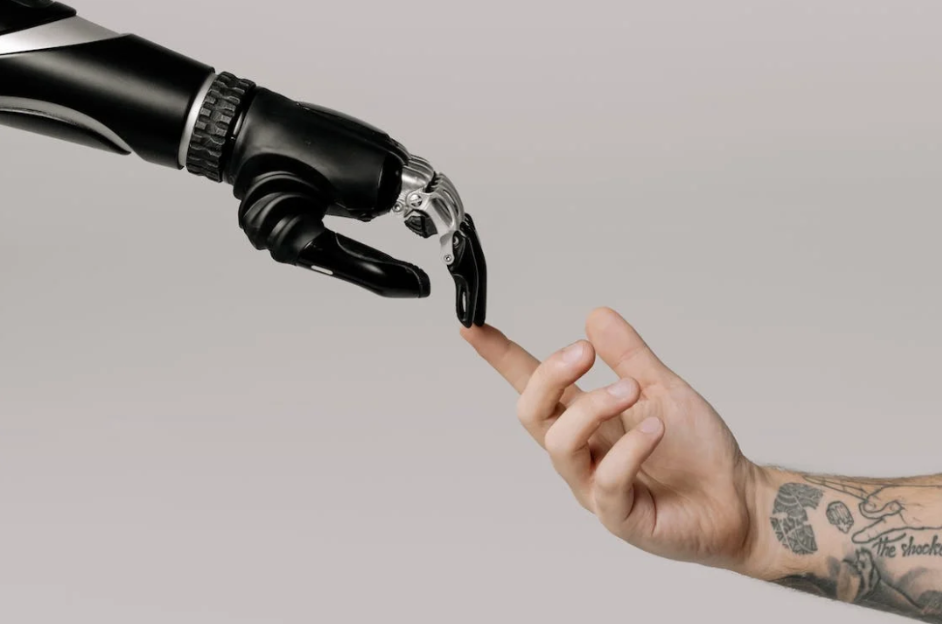Public Safety Transformed by Quantum AI
Quantum AI is revolutionising the field of public safety, promising advancements that were previously unimaginable. This cutting-edge technology combines the power of quantum computing with artificial intelligence, opening up a world of possibilities in safeguarding communities and enhancing emergency response. In this article, we will delve into the fundamentals of Quantum AI, explore its intersection with public safety, discuss its potential applications, and examine the challenges and ethical considerations associated with its implementation.
Understanding Quantum AI
The Basics of Quantum Computing
At the heart of Quantum AI lies quantum computing, a field that leverages the principles of quantum mechanics to process information. Unlike classical computers that use bits to store and process data, quantum computers employ qubits, which are quantum elements capable of superposition and entanglement. This unique property allows quantum computers to perform highly complex calculations exponentially faster than classical computers, transforming the realm of computational power.
Quantum computing harnesses the laws of quantum mechanics to manipulate qubits. These laws, such as superposition and entanglement, enable quantum computers to explore multiple possibilities simultaneously, exponentially increasing their processing capabilities. https://quantumaiplatform.com/ harnesses this computational prowess to solve complex problems in a fraction of the time it would take classical computers.
Imagine a scenario where a classical computer is tasked with solving a complex optimisation problem. It would need to iterate through every possible solution, one by one, until it finds the optimal solution. This process could take an impractical amount of time for problems with a large number of variables. However, a quantum computer can explore all possible solutions simultaneously, thanks to the superposition of qubits. This parallelism allows quantum computers to quickly find the best solution, revolutionising fields such as cryptography, drug discovery, and financial modeling.
Furthermore, entanglement, another fundamental property of quantum mechanics, enables qubits to be interconnected in such a way that the state of one qubit can instantly affect the form of another, regardless of the distance between them. This phenomenon opens up the possibility of creating quantum networks, where information can be transmitted securely and instantaneously over long distances. Quantum AI can leverage this capability to enable real-time collaboration and decision-making, even across vast geographical areas.
AI and Quantum Computing: A Powerful Combination
While quantum computing offers immense computational power, it is the integration of artificial intelligence (AI) that unleashes the true potential of Quantum AI. AI algorithms enable the processing of vast amounts of data and the extraction of meaningful insights. When combined with the speed and efficiency of quantum computing, AI algorithms become even more powerful, enabling faster and more accurate decision-making.
Machine learning algorithms, a subset of AI, play a crucial role in Quantum AI. These algorithms analyse massive datasets to identify patterns and make predictions. By leveraging the computational capabilities of quantum computers, machine learning models can be trained more efficiently, leading to enhanced accuracy and performance.
Imagine a scenario where a machine learning model needs to analyse a dataset with billions of data points. A classical computer would require significant time and resources to process such a massive amount of information. However, with the computational power of quantum computers, the training process can be accelerated significantly. Quantum AI can process and analyse vast amounts of data in parallel, reducing training times from weeks or months to just a few hours or even minutes.
Moreover, the combination of AI and quantum computing opens up new possibilities for solving complex problems that were previously intractable. For example, in the field of drug discovery, scientists can use AI algorithms to analyse large databases of chemical compounds and predict their effectiveness in treating specific diseases. With the computational power of quantum computers, these predictions can be made even more accurately and efficiently, potentially accelerating the discovery of life-saving drugs.
In addition to drug discovery, Quantum AI has the potential to revolutionise various industries, including finance, logistics, and energy. For instance, in the financial sector, AI algorithms can be used to analyse market trends and make investment decisions. When combined with quantum computing, these algorithms can process vast amounts of financial data in real time, enabling faster and more accurate predictions, ultimately leading to better investment strategies.
Overall, the integration of AI and quantum computing in Quantum AI represents a powerful combination that has the potential to transform numerous fields and solve complex problems that were once thought to be unsolvable. As research and development in this field continue to advance, we can expect to see even more groundbreaking applications and discoveries that push the boundaries of what is possible.
The Intersection of Quantum AI and Public Safety
Quantum AI in Emergency Response
During emergencies, such as natural disasters or terrorist attacks, every second counts. Quantum AI can significantly improve emergency response efforts by processing vast amounts of data in real time, enabling authorities to make informed decisions swiftly.
In the case of natural disasters, Quantum AI can analyse sensor data, satellite images, and historical patterns to predict the extent of damage and aid in evacuation planning. Furthermore, during rescue operations, AI algorithms can analyse live feeds from drones and surveillance cameras, enabling first responders to locate survivors more efficiently and allocate resources effectively.
Crime Prevention and Quantum AI
Crime prevention is a crucial aspect of public safety, and Quantum AI can play a pivotal role in fortifying law enforcement efforts. By analysing diverse sources of data, such as criminal records, social media feeds, and surveillance footage, Quantum AI algorithms can identify patterns and anomalies that might indicate illegal activity.
Furthermore, predictive analytics powered by Quantum AI can forecast potential crime hotspots, enabling law enforcement agencies to allocate resources preemptively and prevent criminal incidents. This proactive approach has the potential to reduce crime rates and enhance community safety.
The Future of Quantum AI in Public Safety
Predictive Policing with Quantum AI
One of the most promising applications of Quantum AI in public safety is predictive policing. By analysing vast amounts of historical crime data, Quantum AI algorithms can identify patterns and predict potential criminal activity. This information empowers law enforcement agencies to allocate resources strategically, focusing efforts on areas expected to have a higher likelihood of crime.
However, it is essential to ensure that predictive policing is implemented ethically and with safeguards to prevent biases or violations of privacy. It is a delicate balance between leveraging technology for public safety and respecting individual rights and liberties.
Quantum AI in Disaster Management
Disaster management is another area where Quantum AI holds significant promise. By analysing historical data and real-time sensor feeds, Quantum AI algorithms can predict the impact of disasters, optimise evacuation routes, and enhance resource allocation.
During a disaster, every decision can be critical, and Quantum AI can provide invaluable support to emergency management teams. From monitoring weather patterns to analysing social media sentiment, Quantum AI can help mitigate the damage caused by natural calamities and save lives.
Challenges and Ethical Considerations
Data Privacy and Security Concerns
As with any emerging technology, Quantum AI raises concerns regarding data privacy and security. The immense computational power of quantum computers could potentially crack current encryption algorithms, jeopardising sensitive information.
Addressing these concerns requires robust encryption methods that are resistant to attacks from quantum computers. Researchers and policymakers must work hand in hand to develop encryption standards that can withstand the computational capabilities of Quantum AI while ensuring the privacy and security of individuals’ data.
Ethical Implications of Quantum AI in Public Safety
The integration of Quantum AI in public safety also brings forth ethical considerations. It is crucial to strike a balance between utilising technology to enhance public safety and ensuring that the rights and freedoms of individuals are protected.
Transparency, fairness, and accountability are paramount when implementing Quantum AI solutions. Algorithms must be developed with care to prevent biases and ensure that decisions are made in a just and equitable manner. Additionally, policy frameworks must be in place to govern the use and deployment of Quantum AI in public safety.
Conclusion: The Quantum Leap in Public Safety
In conclusion, Quantum AI has the potential to transform the field of public safety by providing unprecedented computational power to tackle complex challenges. From improving emergency response efforts to enhancing crime prevention, Quantum AI can revolutionise the way we safeguard our communities.
However, it is imperative to navigate the challenges and ethical considerations associated with this technology. By addressing data privacy and security concerns and implementing transparent and accountable frameworks, we can harness the full potential of Quantum AI while upholding the values of public safety and individual rights.




















